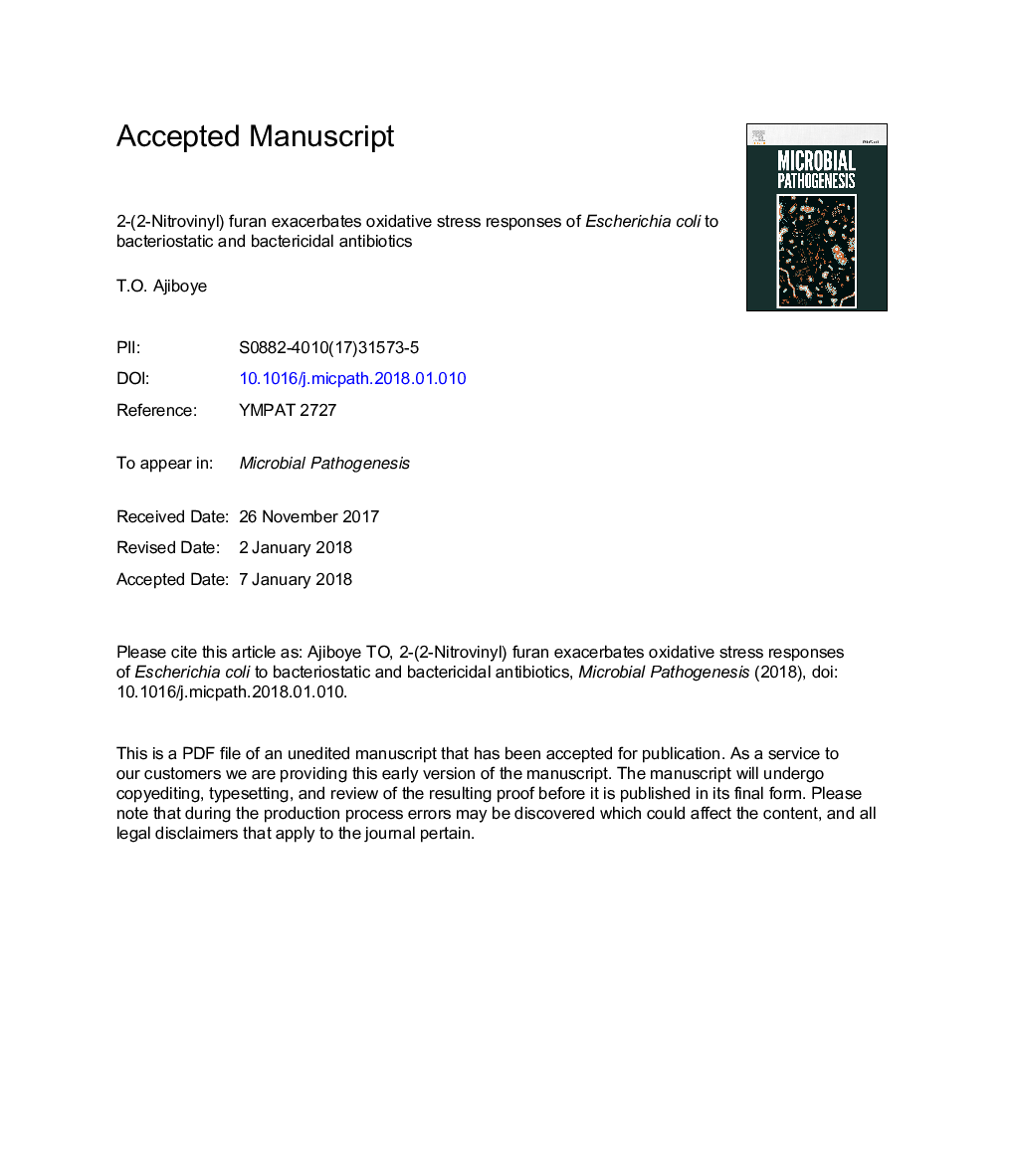| Article ID | Journal | Published Year | Pages | File Type |
|---|---|---|---|---|
| 8749715 | Microbial Pathogenesis | 2018 | 21 Pages |
Abstract
The influence of 2-(2-nitrovinyl) furan on the activities of selected bacteriostatic and bactericidal antibiotics was investigated. Minimum inhibitory concentration and fractional inhibitory concentration index were determined to evaluate the interaction between 2-(2-nitrovinyl) furan and the antibiotics. 2-(2-nitrovinyl) furan exhibited additive interactions with chloramphenicol, erythromycin, lincomycin and gemifloxacin. However, synergistic interaction was observed with amoxicillin, ampicillin and ciprofloxacin. Superoxide anion content of Escherichia coli exposed to antibiotics with/without 2-(2-nitrovinyl) furan increased significantly (pâ¯<â¯.05). Furthermore, reduced glutathione decreased significantly with a corresponding increase in glutathione disulphide. In addition, malondialdehyde, a product of lipid peroxidation, increased significantly in E. coli exposed to antibiotics and 2-(2-nitrovinyl) furan. It can be deduced from this study that 2-(2-nitrovinyl) furan enhanced bacteriostatic and bactericidal antibiotics-mediated bacterial death possibly by potentiating reactive oxygen species generation and oxidative stress.
Related Topics
Life Sciences
Immunology and Microbiology
Microbiology
Authors
T.O. Ajiboye,
